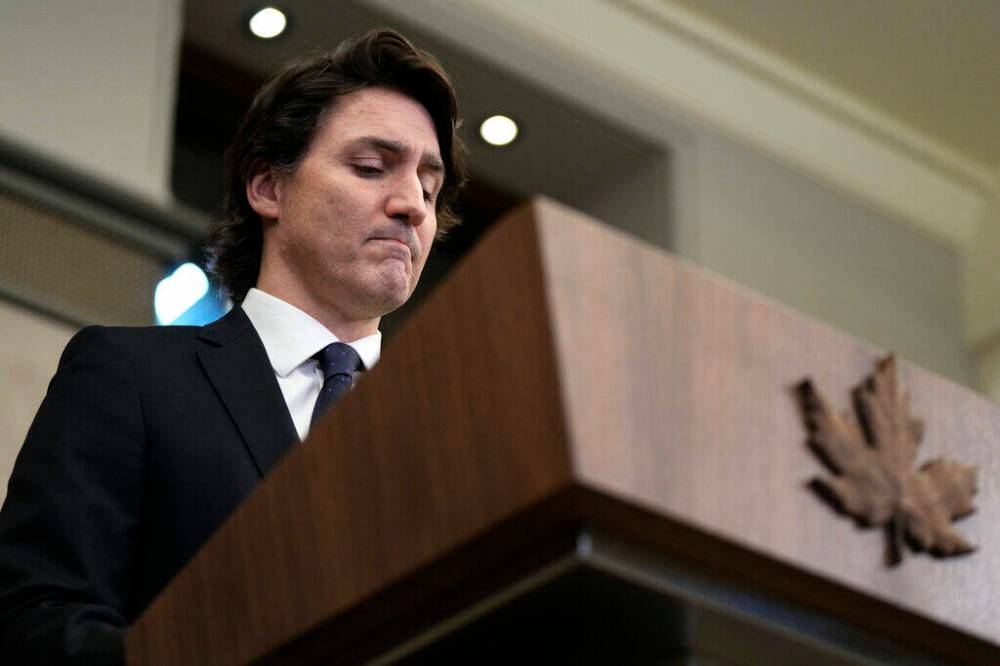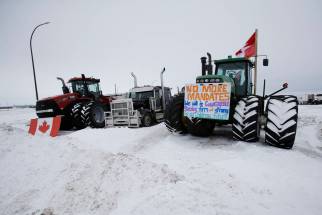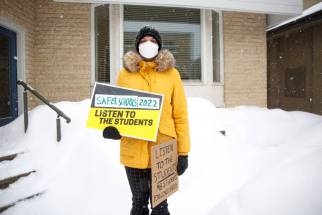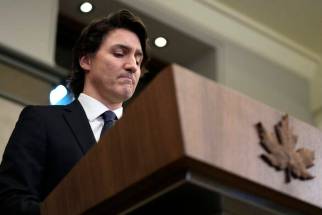Trudeau bets heavily on emergency powers
Read this article for free:
or
Already have an account? Log in here »
To continue reading, please subscribe:
Monthly Digital Subscription
$0 for the first 4 weeks*
- Enjoy unlimited reading on winnipegfreepress.com
- Read the E-Edition, our digital replica newspaper
- Access News Break, our award-winning app
- Play interactive puzzles
*No charge for 4 weeks then price increases to the regular rate of $19.00 plus GST every four weeks. Offer available to new and qualified returning subscribers only. Cancel any time.
Monthly Digital Subscription
$4.75/week*
- Enjoy unlimited reading on winnipegfreepress.com
- Read the E-Edition, our digital replica newspaper
- Access News Break, our award-winning app
- Play interactive puzzles
*Billed as $19 plus GST every four weeks. Cancel any time.
To continue reading, please subscribe:
Add Free Press access to your Brandon Sun subscription for only an additional
$1 for the first 4 weeks*
*Your next subscription payment will increase by $1.00 and you will be charged $16.99 plus GST for four weeks. After four weeks, your payment will increase to $23.99 plus GST every four weeks.
Read unlimited articles for free today:
or
Already have an account? Log in here »
Hey there, time traveller!
This article was published 15/02/2022 (1398 days ago), so information in it may no longer be current.
In poker-playing parlance, this would certainly be described as going “all in.”
Prime Minister Justin Trudeau’s announcement Monday that the federal government is invoking the Emergencies Act, in response to the ongoing urban occupations and border blockades that have disrupted downtowns and stymied international commerce, can only be described as an extreme measure.
But given the tepid tactical responses and occasional faint acquiescences that have occurred at the local and provincial levels, it can also rightly be argued that Mr. Trudeau’s decision is a necessary one.
These occupations are causing damage to Canada’s economy on a scale that is massive and, in some sectors at least, will likely prove to be irreparable.
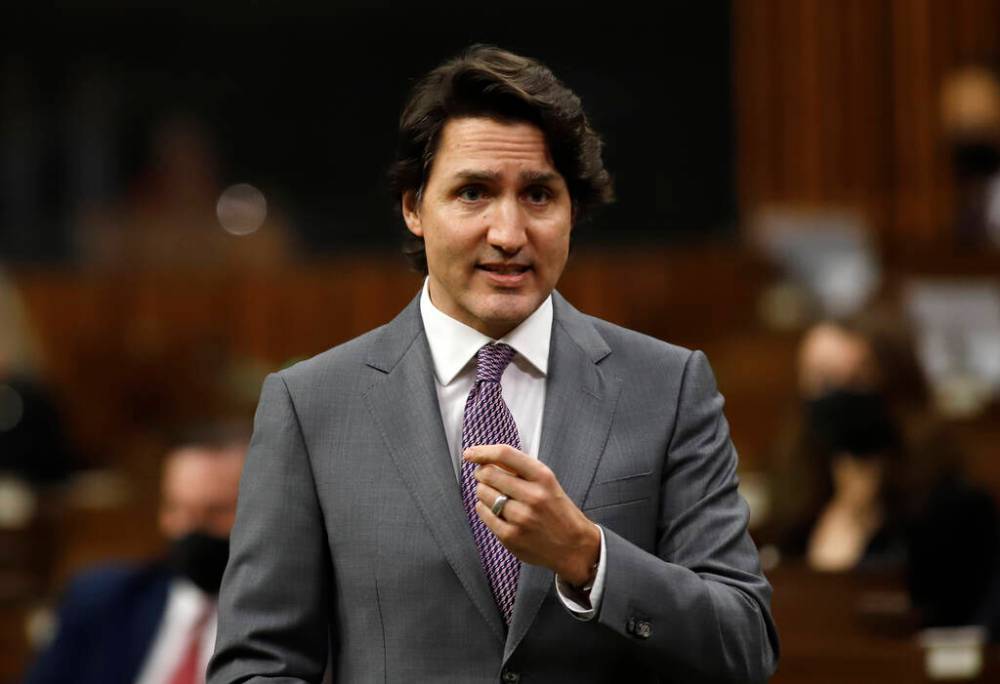
Mr. Trudeau’s invocation of the Emergencies Act in a “time-limited and geographically targeted” manner that is also “reasonable and appropriate to threats (it is) meant to address” creates an opportunity to bring an overdue end to this disruption.
Participants in these intransigent gatherings rightly concluded the sheer physical mass of their vehicles would make their so-called “convoys” difficult to displace once they reached their destinations. But their apparent belief that having big trucks with loud horns makes their general rejection of medical science and democratic principles the foundation of a righteous cause could not be more sadly mistaken.
These occupations are causing damage to Canada’s economy on a scale that is massive and, in some sectors at least, will likely prove to be irreparable.
Provincial governments have so far shown themselves to be unable or unwilling to directly confront the ongoing disturbances. Premier Heather Stefanson, after many days of “we need to have balanced respect” waffling, eventually brought herself to declare that “blockades that disrupt borders and critical infrastructure and impair trade, jobs and the economy, or that unduly infringe the rights of neighbours and communities, cannot be tolerated.”
But when Mr. Trudeau invoked the Emergencies Act, Ms. Stefanson joined Alberta Premier Jason Kenney in declaring such a measure isn’t required in their jurisdictions (Ontario Premier Doug Ford, having earlier declared his own state of emergency, endorsed the prime minister’s announcement).
When Mr. Trudeau invoked the Emergencies Act, Ms. Stefanson joined Alberta Premier Jason Kenney in declaring such a measure isn’t required in their jurisdictions.
There’s no small irony in the fact these two stood solidly in support of provincial legislation protecting critical infrastructure from protest disruption — Mr. Kenney’s legislation was passed into law, while a similar bill introduced while Ms. Stefanson served in former premier Brian Pallister’s cabinet died after he resigned from office — but now are critical of federal measures imposed in response to their provinces’ inability to end the “protest” siege.
Ms. Stefanson is among several Conservative officials urging a negotiated solution to the occupation impasse. But realistically, what is to be negotiated, and by whose authority is this fringe minority of malcontents authorized to strike bargains that affect the lives and health of all Manitobans?
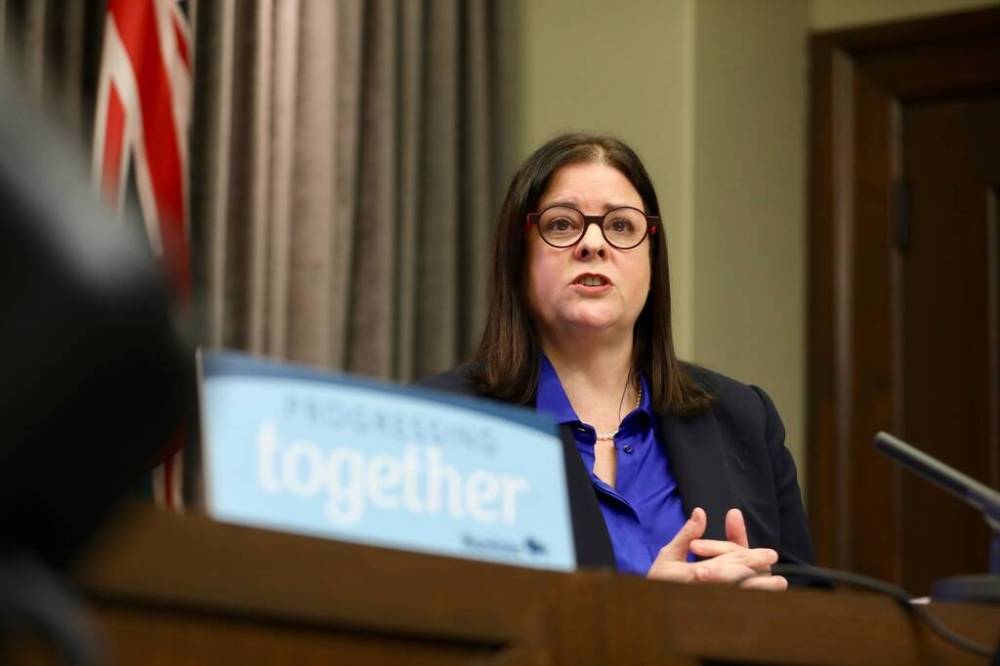
In addition to demanding the removal of all public-health restrictions while the pandemic persists, some among the occupiers also count among their “demands” the removal of democratically elected governments. Organizers of the Ottawa encampment had the temerity to suggest the formation of a “coalition,” comprised of opposition MPs and members of the uprising, which would supplant the Trudeau government.
Such misinformed arrogance, rooted in nothing more than the fact big, heavy trucks are difficult to move, has been afforded more than enough time in the national conversation. Mr. Trudeau has rightly concluded the Emergencies Act affords access to economic levers — freezing corporate and personal bank accounts, imposing regulatory and insurance-related sanctions and clamping down on crowd-funding companies — will be more effective than government-conscripted towtrucks for removing the 18-wheeled barricades.
He has moved his chips all in; for better or worse, the resolution of this crisis will now be on Mr. Trudeau. But Canadians will also remember that when the betting got around to Mr. Kenney and Ms. Stefanson, their play was to fold.
